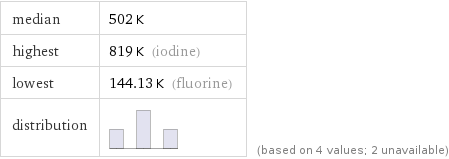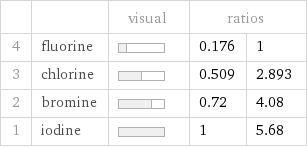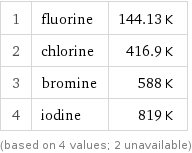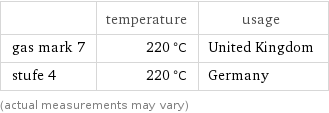Input interpretation

halogens | critical temperature
Summary

median | 502 K highest | 819 K (iodine) lowest | 144.13 K (fluorine) distribution | | (based on 4 values; 2 unavailable)
Entities with missing values

astatine | tennessine (total: 2)
Ranked values

| | visual | ratios | 4 | fluorine | | 0.176 | 1 3 | chlorine | | 0.509 | 2.893 2 | bromine | | 0.72 | 4.08 1 | iodine | | 1 | 5.68
Critical temperature rankings

1 | fluorine | 144.13 K 2 | chlorine | 416.9 K 3 | bromine | 588 K 4 | iodine | 819 K (based on 4 values; 2 unavailable)
Unit conversions for median critical temperature 502 K

229 °C (degrees Celsius)

445 °F (degrees Fahrenheit)

904 °R (degrees Rankine)

183 °Ré (degrees Réaumur)

128 °Rø (degrees Rømer)
Comparison for median critical temperature 502 K

98 K below melting point of lead (327.46 °C)

3 K below autoignition temperature of book paper in Ray Bradbury's famous novel (451 °F)

16.7 K below to 11.3 K above autoignition temperature of paper (218 to 246 °C)
Corresponding quantities

Thermodynamic energy E from E = kT: | 43 meV (millielectronvolts)

Blackbody energy flux Φ from Φ = σT^4: | 3614 W/m^2 (watts per square meter)

Approximate luminous exitance from a planar blackbody radiator perpendicular to its surface: | 1.8×10^-9 lx (lux)
Nearest corresponding gas marks for median critical temperature 502 K (kelvins)

| temperature | usage gas mark 7 | 220 °C | United Kingdom stufe 4 | 220 °C | Germany (actual measurements may vary)